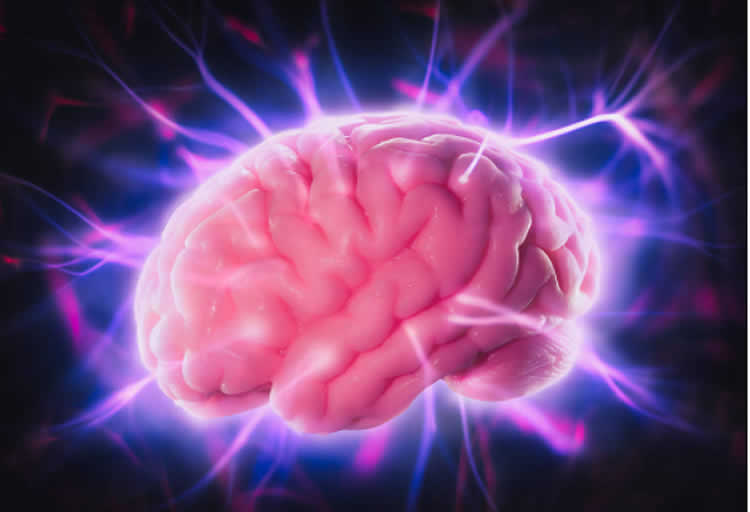Summary: A new study reports neural activity in the prefrontal cortex reacts as though every experience is brand new, even if the event is similar to ones that have previously occurred. Researchers say this could account for feelings of déjà vu.
Source: Medical University of Vienna.
Neuronal activity in the prefrontal cortex represents every experience as “novel.” The neurons adapt their activity accordingly, even if the new experience is very similar to a previous one. That is the main finding of a study conducted by researchers from MedUni Vienna’s Division of Cognitive Neurobiology and recently published in the leading journal Nature Communications.
“As far as the brain is concerned, every experience is unique, no matter how similar it is to an earlier one. The neurons in the prefrontal cortex will be active each time – just as if the experience was entirely new,” explains study author Hugo Malagon-Vina from the Division of Cognitive Neurobiology at MedUni Vienna’s Center for Brain Research. Potential neuronal activity “mismatching” during this process might lead to the phenomenon of déjà vu, explains Malagon-Vina.
This has now been demonstrated by the MedUni Vienna researchers for the first time, using an animal model. They recorded and analysed the activity of around 300 neurons.
Nothing is ever perceived in the same way twice
“Of course, there is memory,” says Malagon-Vina. “But the brain needs flexibility, so that it can constantly adapt. This is achieved by each event being perceived as new.” From a philosophical perspective, says the MedUni Vienna researcher, an analogous explanation is provided by a quote from the old Greek philosopher Heraclitus: “No man ever steps in the same river twice, for it’s not the same river and he’s not the same man.” Malagon-Vina explains that “He (Heraclitus) was referring to the ambiguity that deliberate actions and plans are never perceived in the same way, no matter how similar they were to each other.”

At the same time, this flexibility, and the experience of uniqueness, allows people to experience feelings of joy or surprise, or the so-called “wow” effect, says Malagon-Vina. The results also show that the brain is able to perceive lifelong experiences as something new, so long as the neuronal activity is not impaired by a disease. According to the MedUni Vienna brain researcher, this is an argument in favour of staying mentally active into old age. Neurons are always ready to “adapt” in the face of new knowledge and to process new experiences as unique.
Source: Medical University of Vienna
Publisher: Organized by NeuroscienceNews.com.
Image Source: NeuroscienceNews.com image is adapted from the Medical University of Vienna news release.
Original Research: Open access research in Nature Communications.
DOI:10.1038/s41467-017-02764-x
[cbtabs][cbtab title=”MLA”]Medical University of Vienna “Every Experience the Brain Perceives is Unique.” NeuroscienceNews. NeuroscienceNews, 20 February 2018.
< https://neurosciencenews.com/experinece-perception-unique-8523/>.[/cbtab][cbtab title=”APA”]Medical University of Vienna (2018, February 20). Every Experience the Brain Perceives is Unique. NeuroscienceNews. Retrieved February 20, 2018 from https://neurosciencenews.com/experinece-perception-unique-8523/[/cbtab][cbtab title=”Chicago”]Medical University of Vienna “Every Experience the Brain Perceives is Unique.” https://neurosciencenews.com/experinece-perception-unique-8523/ (accessed February 20, 2018).[/cbtab][/cbtabs]
Abstract
Fluid network dynamics in the prefrontal cortex during multiple strategy switching
Coordinated shifts of neuronal activity in the prefrontal cortex are associated with strategy adaptations in behavioural tasks, when animals switch from following one rule to another. However, network dynamics related to multiple-rule changes are scarcely known. We show how firing rates of individual neurons in the prelimbic and cingulate cortex correlate with the performance of rats trained to change their navigation multiple times according to allocentric and egocentric strategies. The concerted population activity exhibits a stable firing during the performance of one rule but shifted to another neuronal firing state when a new rule is learnt. Interestingly, when the same rule is presented a second time within the same session, neuronal firing does not revert back to the original neuronal firing state, but a new activity-state is formed. Our data indicate that neuronal firing of prefrontal cortical neurons represents changes in strategy and task-performance rather than specific strategies or rules.







